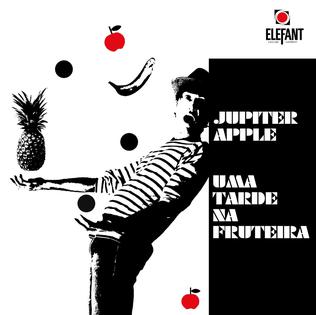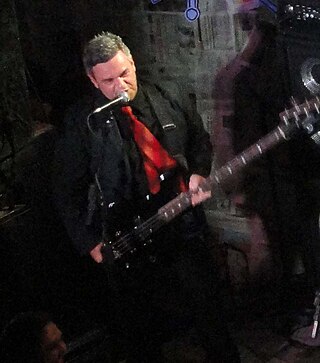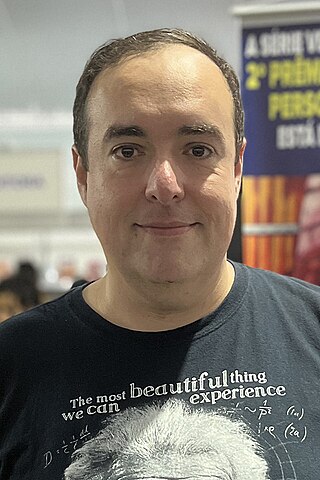
Samba is a name or prefix used for several rhythmic variants, such as samba urbano carioca, samba de roda, amongst many other forms of samba, mostly originated in the Rio de Janeiro and Bahia states. Samba is a broad term for many of the rhythms that compose the better known Brazilian music genres that originated in the Afro-Brazilian communities of Bahia in the late 19th century and early 20th century, having continued its development on the communities of Rio de Janeiro in the early 20th century. Having its roots in Brazilian folk traditions, especially those linked to the primitive rural samba of the colonial and imperial periods, is considered one of the most important cultural phenomena in Brazil and one of the country symbols. Present in the Portuguese language at least since the 19th century, the word "samba" was originally used to designate a "popular dance". Over time, its meaning has been extended to a "batuque-like circle dance", a dance style, and also to a "music genre". This process of establishing itself as a musical genre began in the 1910s and it had its inaugural landmark in the song "Pelo Telefone", launched in 1917. Despite being identified by its creators, the public, and the Brazilian music industry as "samba", this pioneering style was much more connected from the rhythmic and instrumental point of view to maxixe than to samba itself.

Paulo Leminski Filho was a Brazilian writer, poet, translator, journalist, advertising professional, songwriter, literary critic, biographer, teacher and judoka. He was noted for his avant-garde work, an experimental novel and poetry inspired in concrete poetry, as well as abundant short lyrics derived from haiku and related forms. He had a remarkable poetry, as he invented his own way of writing, with puns, jokes with popular sayings and the influence of haiku, in addition to abusing slangs and profanity.

The Funnies, also known as Bubbly the Astronaut, is a Brazilian comic strip series, created in 1963 and part of the Monica's Gang comic strips. It centers around Bubbly, an astronaut, whose parents and ex-girlfriend Rita appear very rarely, making him the only recurring character. The comic strip can be defined as a science fiction adventure strip.

Olavo Luiz Pimentel de Carvalho was a Brazilian self-proclaimed philosopher, political pundit, former astrologer, journalist, and far-right conspiracy theorist.

Edson Secco is a Brazilian composer, musician and sound designer.

Flávio Basso, better known by his stage name Júpiter Maçã and by its English-language variation Jupiter Apple, was a Brazilian singer, songwriter, multi-instrumentalist and filmmaker. Before beginning a solo career in 1994, he was already known for being a founding member of bands TNT and Os Cascavelletes, both pioneers of the Rio Grande do Sul rock scene in the mid-to-late 1980s/early 1990s.

A Sétima Efervescência is the debut solo album by the Brazilian musician and former TNT and Os Cascavelletes member Flávio Basso, also known as Júpiter Maçã or Jupiter Apple. It was released in 1997 by independent label Antídoto, and counted with guest appearances by Basso's former Os Cascavelletes bandmates Frank Jorge and Alexandre Barea, and by Graforreia Xilarmônica guitarist Marcelo Birck, who contributed with the musical arrangements for the track "Eu e Minha Ex". Many tracks which appeared on the album were re-recorded from Basso's 1995 demo tape with Os Pereiras Azuiz, Orgasmo Legal.

Uma Tarde na Fruteira is the fourth studio album by the Brazilian musician Jupiter Apple; released in 2007 by Spanish label Elefant Records, it was the musician's final studio album to come out during his lifetime. Distancing itself from its predecessors Plastic Soda and Hisscivilization, it is mostly sung in Portuguese and returns to the more "accessible" psychedelia of his 1997 debut A Sétima Efervescência, in sonority terms.
O Mapa da Mina is a Brazilian telenovela produced and aired by TV Globo from March 29, 1993 to September 3, 1993, in 137 episodes.
Maurício Pereira is a Brazilian singer-songwriter, lyricist, journalist, saxophonist, television announcer, stage actor and record producer best known for his work with experimental rock duo Os Mulheres Negras.

Os Cascavelletes were a Brazilian rock group from Porto Alegre, Rio Grande do Sul. One of the first rock bands from Rio Grande do Sul to acquire mainstream success nationwide alongside its "sister project" TNT, they were characterized by their irreverent style inspired by 1950s-era rockabilly culture and acts such as The Rolling Stones and The Beatles, and by their comical, profanity- and sex-laden lyrics. Some of their most famous compositions are "Sob um Céu de Blues", "Menstruada", "Estou Amando uma Mulher", "Eu Quis Comer Você" and the 1989 hit "Nêga Bombom".

Nei Van Soria is a Brazilian singer-songwriter, lyricist, pianist, guitarist and record producer, famous for his work with pioneering Rio Grande do Sul rock bands TNT and Os Cascavelletes.

Jorge Otávio Pinto Pouey de Oliveira, better known by his stage name Frank Jorge, is a Brazilian singer-songwriter, lyricist, multi-instrumentalist, poet, chronicler and professor, famous for his work with pioneering Rio Grande do Sul rock bands Os Cascavelletes and Graforreia Xilarmônica.
TNT was a Brazilian rock group from Porto Alegre, Rio Grande do Sul. One of the first rock bands from Rio Grande do Sul to acquire mainstream success nationwide alongside its "sister project" Os Cascavelletes, they are known for hits such as "Entra Nessa", "Estou na Mão", "Ana Banana", "Cachorro Louco" and "A Irmã do Dr. Robert".

Oriovisto Guimarães is a Brazilian politician. He has represented Paraná in the Federal Senate since 2019 and he is a member of Podemos. He was president of Grupo Positivo and rector of the Universidade Positivo.
Bula is a Brazilian alternative rock band from Santos, São Paulo, originally composed by former members of the bands Charlie Brown Jr. and A Banca.
Aldemir dos Santos Ferreira, commonly known as Ferreira or Ferreirinha, is a Brazilian professional footballer who plays as a winger for São Paulo.

Lucio Luiz is a Brazilian journalist, writer, editor, podcaster and comics author. He holds a degree in Journalism and has Master's degree and Doctorate in Education.

Paulo Sérgio Kostenbader Valle is a Brazilian composer and lyricist.














